My father lived on the same street and had the same address for most of his 82 years. He moved into the original Alton Road, the big house as we called it, with his parents and older brother in 1944. In 1967 his parents built a new house next door to the big one on a lot of land they had purchased back when they bought the big house, and somehow they took the address of the original house with them. I will never understand this. Did the neighbors take new numbers for their houses so that my grandparents could have their original number?
The new house was modern, well-built and designed custom to the likes of my family with high countertops and extra long bathtubs. My grandfather was quite tall at 6 foot 4 inches and my father was 6 foot 2. I am told that my grandfather was a forward thinking man, and that is evident in the design of the new house with its first floor primary bedroom and bathroom, large kitchen, open concept dining room and living room plus walk-in closets and ridiculous amounts of storage spaces.
My grandfather died in 1978, and my grandmother moved to New York City to be near the art and culture she loved. The second floor art studio in the house would not cut it for her. In 1981, I moved into the house along with my older brother and parents.
I loved growing up in that house. I loved all the cool unique things about it like the secret closet/playroom off my room, the laundry chute also in my room, the trick wall in the living room which opened up into a bar with a passthrough to the kitchen and the delivery closet by the side kitchen door where our friends and neighbors knew they could find the spare key to the house “hidden” in the old metal bandaid box on the closet’s shelf.
I also loved that I could ask my dad anything about the house and he would know the answer. After all he had watched his father build the house. When I was little, I imagined my grandfather physically building the house pink Georgian brick by brick. I later learned the difference between designing and building and also that at times my father, then a young man, did in fact take on manual labor in the building process as directed by his father, a man he worshiped in a way I have never seen before and most likely never will.
My father left that house the only way I had suspected he would. He died there this past summer — peacefully in the house he so loved and which I believe loved him back.
Since he died, I have spent a lot of time in the house figuring out what to do with the contents in it before we sold it. Going to that house without my father in it was hard as my dad was a staple of it. He was as much a part of that house as was the marble fireplace in the living room and the wooden banister which we were repeatedly told not to lean on as kids. I kept telling my husband every day that today — this day — would be the last day I would go to the house.
“I am ready to say goodbye,” I’d say day after day, but I wasn't. Until one day — I finally was. I stopped by the house one morning in search of an innocuous blanket in the upstairs den. I had been there just the day before with the movers as I explained to them what pieces of furniture my brother and I were taking and what pieces would be sold and which ones donated.
I really just wanted to pop in to the house, grab the blanket and go. But then, that morning, for the first time in my nearly five decades of knowing and loving that house, of living in it, of popping in and out of it for visits — it no longer felt like our house. It was almost empty. It was time to say goodbye.
I stood there in the dining room, seeing in my mind’s eye so many of the holiday dinners we hosted there. My mom sat at the head of the table near the kitchen door and my dad at the other end by the glass slider door out to the patio. I heard the voices of my grandparents, parents and aunts and uncles gathered round the extended dining room table. My brother, cousins and I sat at the drop leaf “kids” table two steps down below in the living room in our assigned seats designated by place cards, handwritten by my mom. I saw teenager me walking around the tables behind my mom helping her set them well in advance of each holiday with thought, prevision and care. No one set a table as beautiful as my mother did.
The baby grand piano was still there in the living room that morning. My brother and I took painstakingly, ill-fated long lessons there. I only remember how to play “Heart and Soul.” My father later took lessons on that piano soon after my mother died, nearly twenty years ago, trying to find his way in that house as a widower. I imagined the bare piano still covered in framed pictures of family and close friends. My mother made it clear that no photos of boyfriends or girlfriends made it to the piano until there was an engagement.
I glanced out to the stone patio off the living room fixating on the modern brick wall on the side which we climbed up as children (it used to seem so big!) and then out to the side field — another lot of land that my father never wanted to sell and never did, even though he had offers. We used that land as our childhood baseball field. First base was the bush near the “mean old lady” neighbor who used to yell at us for throwing baseballs too close to her kitchen window. Home plate was the side of the field nearest our circular driveway by the basketball hoop. You could never slide into home because you would hit the driveway, and also I never had the guts or coordination to slide.
I made my way into the kitchen remembering it in all its forms — the 1970s/1980s yellow flowered wallpapered version of my grandparents and of my childhood with the antique wooden oval table on the other side of the coiled stovetop. My view of that kitchen is forever etched in my memory from the vantage point of my assigned seat at the table, back to the stove and to the immediate right of the yellow wall phone. My mother made sure the four of us sat together at that kitchen table almost every night. I can’t recall what we ate (my mother was a self-described terrible cook!) but I do remember so many of those conversations and just being there, each and every night— together.
My dad, his girlfriend/partner (I set them up after my mom died — as I always said, the best thing I ever did!) and I redesigned that kitchen a few years ago making it modern in white and gray with stainless steel appliances, quartz countertops and new wood floors. That last morning I was in the house, I also thought about my father sitting at the newer modern rectangular kitchen table this past year (he took over my seat and I his) as he he swallowed his pills each morning with his glass of orange juice and read his New York Times with his magnifying glass. Every time I walked into that kitchen from the side door by the delivery closet over the course of nearly 50 years, whether home from a day of school as a child, home for a break in college or stopping by for a visit this summer to see my weakening dad, I was always greeted with a warm and welcoming smile and “Hi Rach! What’s new? What’s the plan for today?”
I made my way down the first floor hallway to my dad’s bedroom. I still remember playing in that room as a very little girl visiting my grandparents when my grandfather was sick. Back then the bedroom was yellow. My parents painted it white, and I got to spend the day in there when I was home sick from school watching TV in their bed as my mom brought me soup and ginger ale on the light blue plastic tray — the same one I served my dad food on when he became sick this summer. The room was painted blue in more recent years for my dad and his girlfriend. She called my mother’s former dressing area her “station” making it her own all the while always respecting the memory of my mother, which I so appreciated and even more so respected.
I looked out the sliding glass door of the bedroom to the side patio where my brother and I had our Bar and Bat Mitzvah parties in tents both on rainy cold autumn days. I had actually watched the tent blow down two days before my brother’s Bar Mitzvah in 1985. My dad reassured my mom and all of us really that the house could handle whatever the tent couldn’t. And it did.
As I walked up the stairs to the second floor, I paused for a moment on the landing remembering hiding out there as a kid and eavesdropping on the grownup dinner parties my parents threw down below. I obtained excellent information, which I still can recall at very random moments, from sitting on that landing in my nightgown. I walked down those same steps in 1999 to greet my soon to be husband in my wedding dress on our wedding day as we had our pictures taken in that house.
I opened the door to the upstairs storage room converted into a playroom by my parents. All that was left there was the ping-pong table. I found my paddle with my name and phone number written in magic marker in my little kid handwriting. My cousins taught me how to play ping-pong there. They taught me how to talk trash to my opponents (them!) and also how to be a good sport, after almost always losing.
I stopped in my brother’s room upstairs, which was the original art studio built for my grandmother. The oversized art bins worked as storage spaces for my brother’s books and sports equipment, and the lab like sink often came in handy. My father took up art soon after he learned to play the piano as a widower. And so that room became an art studio once again, until this past year when my father could no longer walk up the stairs.
I glanced into the upstairs den which was originally my grandfather’s office, then my dad’s office complete with our first ever computer, the Apple II Plus. I rushed home from school many days to watch General Hospital on the TV in that den seated comfortably on the den couch — the same one that opened up to a sofa bed which my grandmother slept in when she came to visit us from New York City and then from Florida. She kept her electric blanket in the den closet. It was still there that day.
My last stop was my room tucked away at the end of the hall above the kitchen. My room had been my dad’s room when the house was first built. I loved that fact and that shared connection of ours. When I was little and couldn't sleep at night, my dad would tuck me in and hang out in my other twin bed until I fell asleep. In a full circle of life moment, I recalled then that day how I would tuck my dad in his bedroom down below all last summer as he napped most afternoons, and I would wait for him to fall asleep sitting nearby in a chaise lounge.
I stood in my childhood room for I’m not sure how long recalling the sleepover parties, playing dress up and playing with my dollhouse in the secret closet converted into a small playroom off my room. I even opened up the laundry chute imagining my mom’s voice calling from the open chute below to throw down the towels.
I looked over to my desk which sat below the oversized window as it always had. It was at that desk where I discovered that I loved to write in high school, where I felt I did my best work, and where I would sometimes bring my laptop to write articles and manuscripts when my current grownup house, or the local Starbucks just 15 minutes away, wasn’t doing it for me. It was at that desk where I wrote my father’s eulogy in the late afternoon on the day he died.
I had arrived at the house very early in the morning on that fateful day to say one last goodbye to my dad. I drew some kind of strange comfort as I squeezed his hand and kissed his forehead knowing that he drew his last breath in that house.
I can only imagine what that house meant to my dad. He had watched his beloved father “build” it. He lived in it as a young man, a young husband and father, a widower, an empty nester, an elder statesman of the neighborhood and finally as an ailing older man. He never wanted to say goodbye to that house, and he never had to.
It felt like the ultimate gift that he could stay in the house until the end. I am proud of that gift we gave him, one that he had more than earned. My father gave that house all he had, and in return, the house gave the same to him.
And so with much appreciation for and apologies to Shel Silverstein, author of some of the books and collections of poems that my dad read to me so many night in my room above the kitchen, I’d like to think of that house as Shel Silverstein’s, The Giving Tree. Here is my best attempt at editing the ending to that beautiful story.
I don’t need very much now said my dad just a quiet place to sit and rest. I am very tired.
Well, said the house, straightening herself up as much as she could, well an old house is good for sitting and resting. Come, old man, sit down. Sit down and rest.
And my dad did.
And the house was happy.




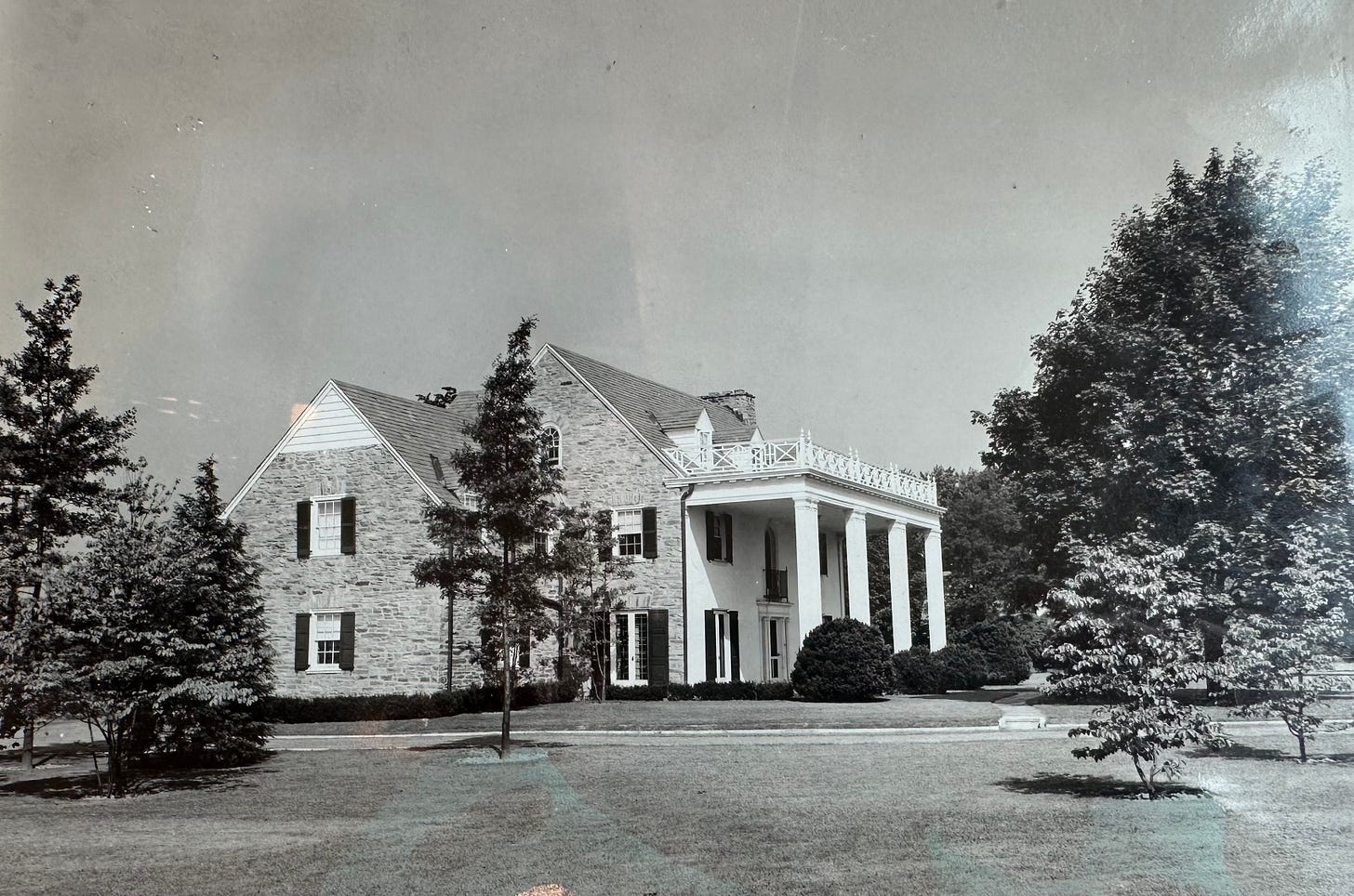

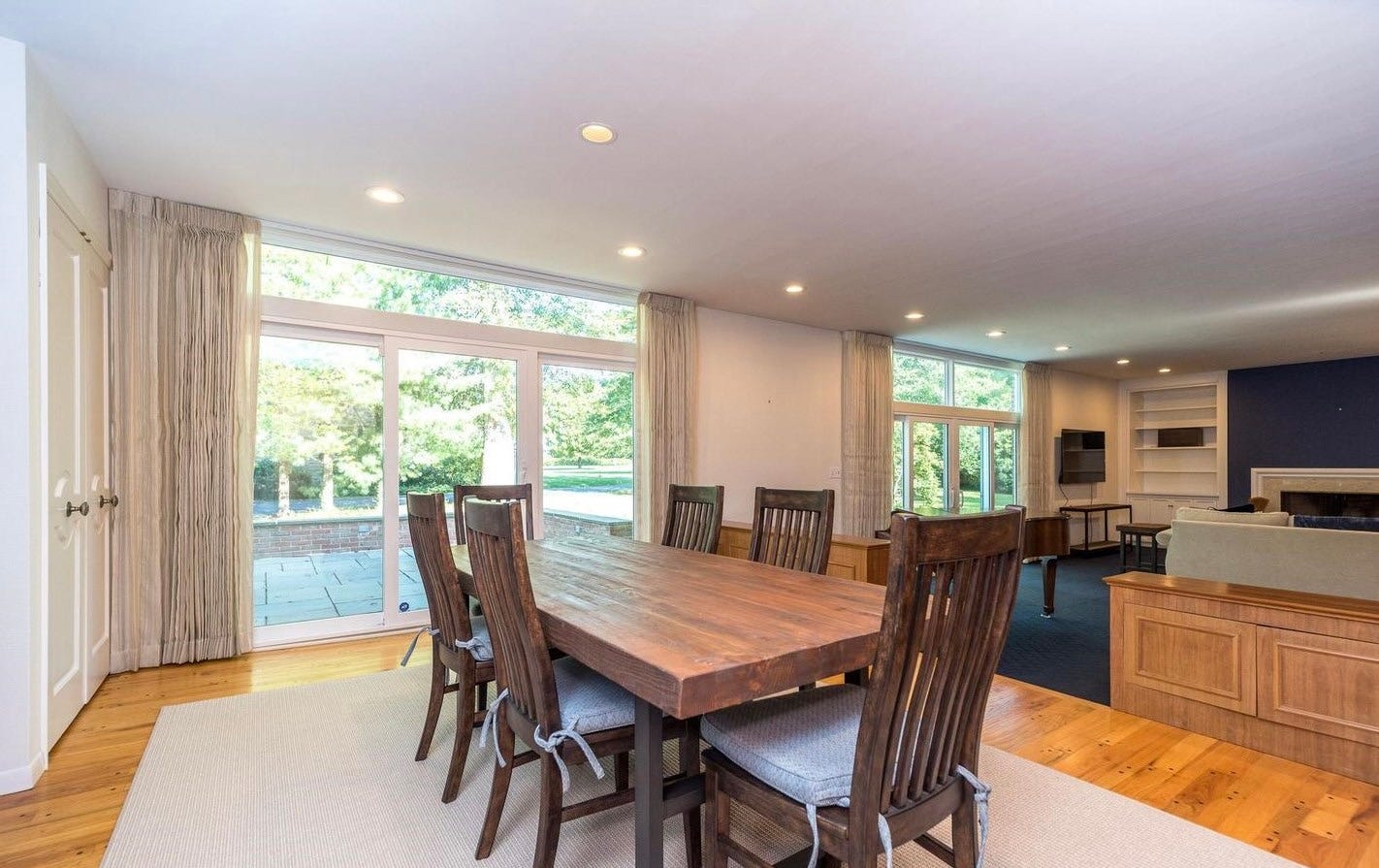
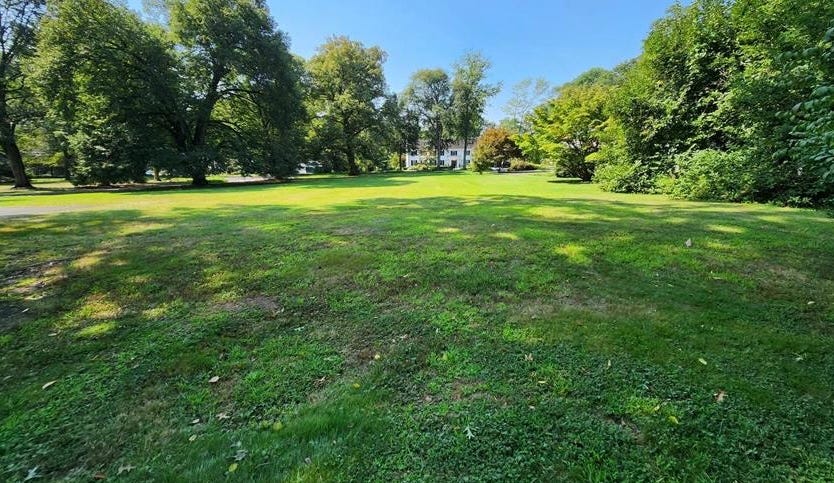
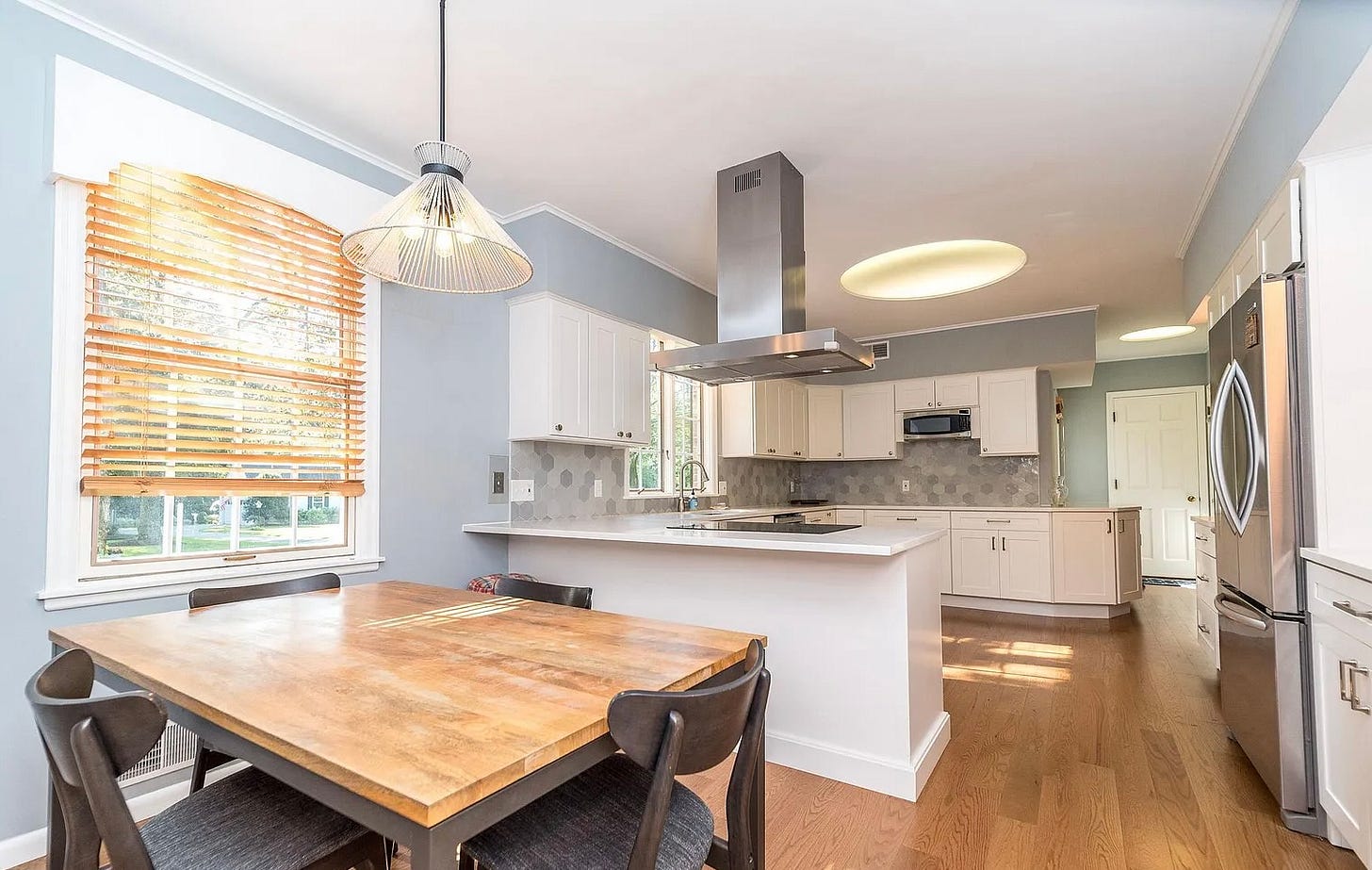
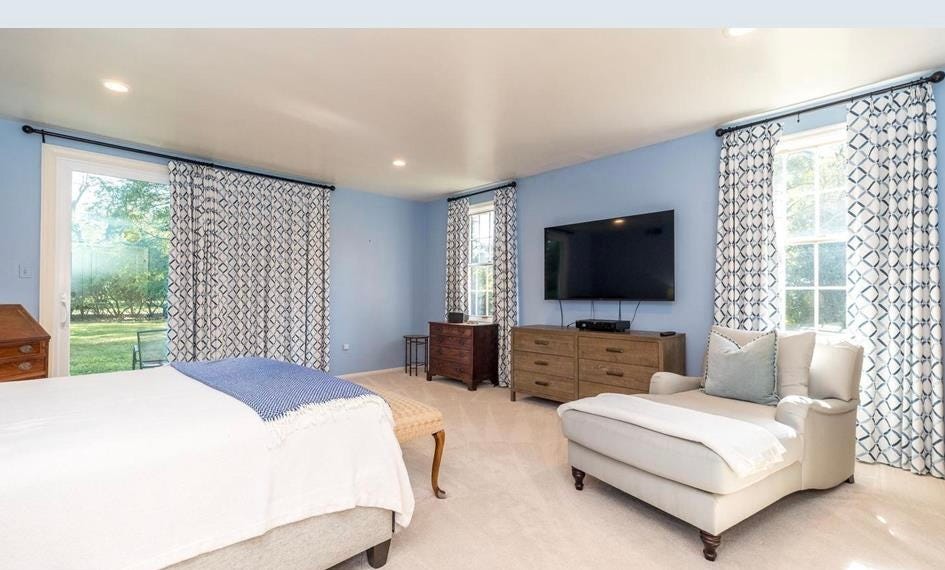
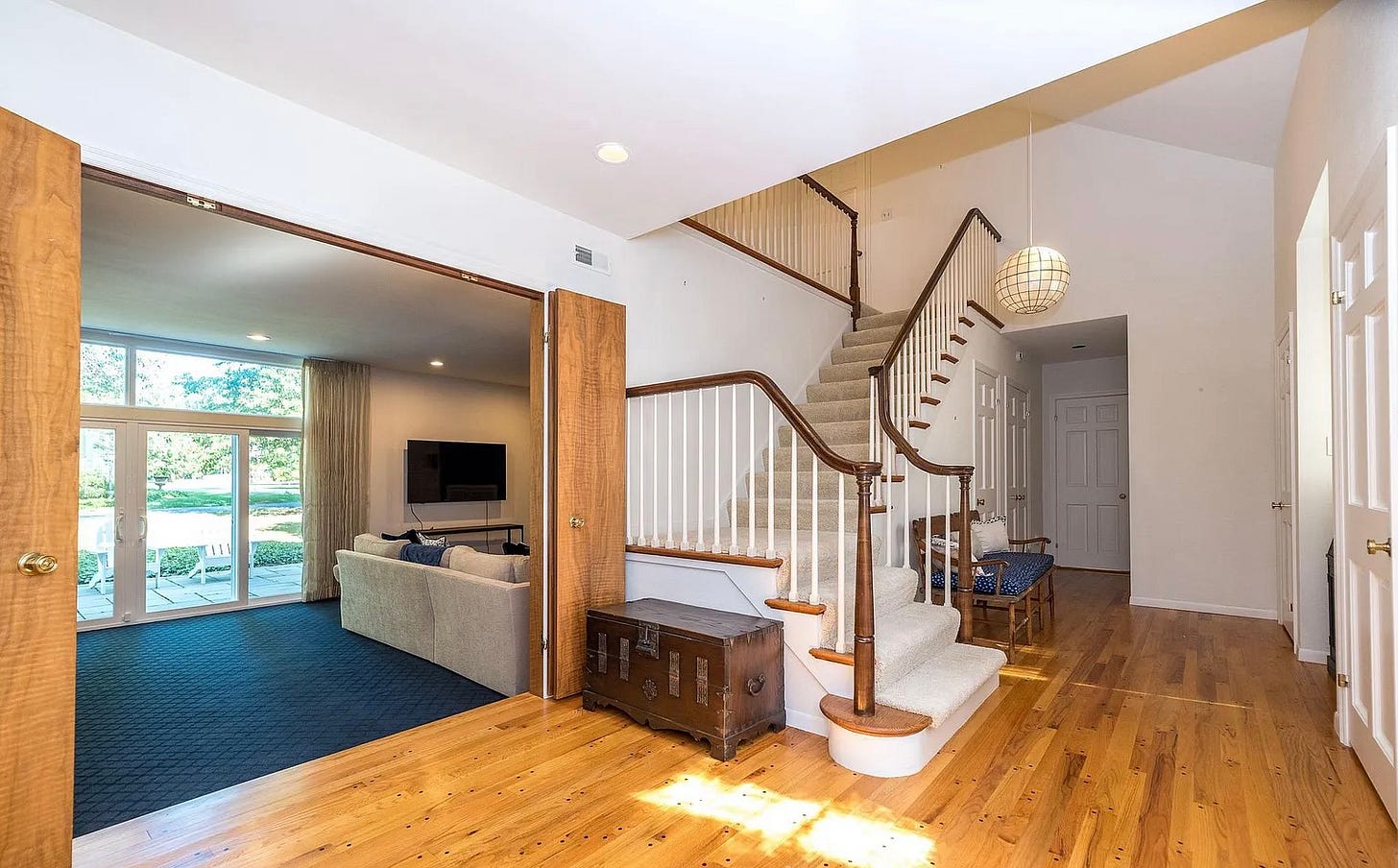

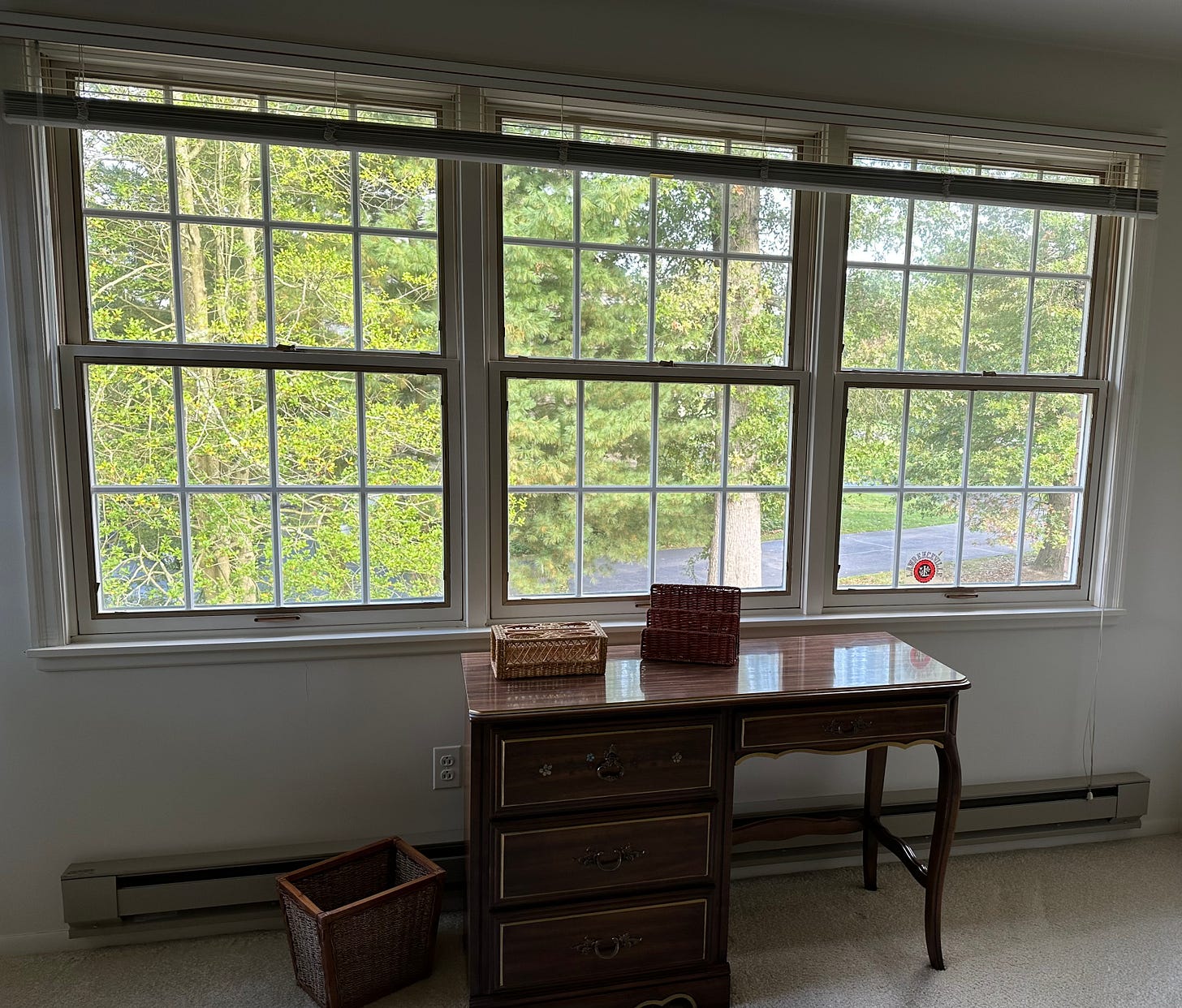
So enjoyed this trip back in time -- multiple generations - into this special home that meant so much to you all. Thank you for sharing.